Dr. Pat Ogden – Body Wisdom Therapy
Dr. Pat Ogden – Body Wisdom Therapy
[Audio Rip – MP3]
Description
**** elib Exclusive **** This is the result of a Group Buysharing elsewhere will result in being banned!Dr. Pat OgdenBody Wisdom TherapyFree BONUS For The Will Horton Life Coaching GBDr. Pat Ogden is a pioneer in somatic psychology and internationally recognized for specializing in somatic–cognitive approaches for the treatment of posttraumatic stress disorder and attachment disturbances. In this series, Pat offers understanding and relief from trauma and various disorders using the wisdom of the body. Understanding TraumaIn this session, Dr Pat Ogden walks us through the theory of understanding trauma. She outlines why our instinctive responses to trauma can affect us and explains why trauma is often misunderstood. Dr Ogden takes us to the root of trauma and shares why some people are traumatised and why other people are not. She describes why trauma can leave lasting imprints if an event threatens our safety and survival. Dr Ogden shows us how we can manage the effects of our trauma using tools and techniques to help us become aware of our bodies and their responses.Overwhelming EmotionsIn this session, Dr Pat Ogden investigates the overwhelming emotions that arise in the experience of a traumatic event. We discover why our emotions can seem out of control after we’ve experienced trauma. Dr Ogden explains the reasons for this and provides us with tools to regulate those emotions, so they don’t feel so overwhelming. Dr Ogden outlines why trauma affects our bodies and our nervous system, highlighting the role of our instinctive responses and the impact our defensive responses have on our bodies when we feel unsafe.Improving Your RelationshipsIn this session, Dr Pat Ogden discusses how we can improve our relationships. We learn about how we form our relational patterns through early attachment, and how these formative relationships when we are young can impact on our adult relationships. Dr Ogden shows us how these relationships can affect us pre-verbally when we are babies. We also learn how to be aware of our bodies responses in relationships. By exploring how our own bodies hold patterns, we can start shifting the imprint of past relationships of attachment on our present relationships.Setting BoundariesIn this session, Dr Pat Ogden shows us how to set boundaries with ourselves and others, and how to have those boundaries respected. She investigates the difficulty of setting boundaries and saying no to people, and how we could be stuck in a pattern of not asserting ourselves. Research shows that boundaries are communicated non-verbally through our bodies. Dr Ogden shows us how to use our bodies to say no and shift the way we communicate with ourselves and others to ensure we have our boundaries respected.Increasing Your HappinessIn this session, Dr Pat Ogden explores how we can cultivate more happiness and a greater sense of wellbeing in our lives. When we have experienced trauma or negative experiences, we tend to focus on those negative memories. Dr Ogden shows us how to uncouple memories to shift our negative focus and explore new ways of thinking. We learn how to reclaim positive memory and broaden our capacity to appreciate the things in our life that give us pleasure and notice the effects this has on our bodies.Regulating Your ArousalIn this session, Dr Pat Ogden shows us how we can modulate our arousal. After we experience trauma it is a natural occurrence that our arousal becomes either too high or too low. Dr Ogden explains why our arousal becomes dysregulated after we experience trauma. She provides us with tools and techniques to help us reset our nervous system, and bring our arousal into an optimal arousal level that is neither hyper-aroused (too high) nor hypo-aroused (too low). Dr Ogden discusses the importance of listening to our body’s arousal without judgement but with compassion and understanding.Healing Your ShameIn this session, Dr Pat Ogden investigates the difficult emotion of shame. She explores the thoughts and defences behind shame and provides us with tools to help heal this. Dr Ogden describes the difference between guilt and shame, and teaches us about how our attachment figures in early childhood relationships may have impacted on us as children. She explains why shame is isolating and how the shameful parts of us need to be understood. We learn about the relationship between shame and trauma, identifying it’s purpose and the effects on our bodies.DepressionIn this session, Dr Pat Ogden investigates the root causes of depression and offers skills and techniques for dealing with depression. Sometimes it can be difficult for us to identify the cause of our depression. Dr Ogden explains the different root causes, including; our personal histories, trauma and grief. We learn how hypo-arousal (low arousal) states are often pre-cursors for depression and she teaches us ways to mitigate that trauma related hypo-arousal. Dr Ogden shows us how to use our bodies to challenge our depression and how to bring compassion to the depressive part of ourselves.Social AnxietyIn this session, Dr Pat Ogden investigates the common experience of social anxiety. Most people will experience social anxiety at some point in their lives. Unfortunately, social anxiety interferes with our enjoyment of life and can negatively impact on our daily activities. Dr Ogden outlines the many causes of social anxiety and explains the impact our peers and caregivers may have. She identifies the signs and symptoms of this condition, discussing the important role our body plays. Dr Ogden shows us a variety of tools to help mitigate the effects of social anxiety in our lives.Regulating Your RageIn this session, Dr Pat Ogden explores how to regulate our explosive behaviours behind dysregulated emotions that feel like rage. Dr Ogden discusses why rage appears in our body and explains the triggers in our daily lives that may be a precursor to the arousal of rage. Dr Ogden offers tips to regulate our uncontrollable emotions and how to manage them. This can help change our behaviour, from that initial surge of adrenalin of arousal that can mobilize us and teach us to calm those responses to change the outcome.Dealing with RapeIn this session, Dr Pat Ogden investigates the traumatic experience of rape. She walks us through what happens inside of us during these experiences and offers tools to help us heal from rape. Victims of rape often judge themselves. Dr Ogden discusses the importance of releasing our self-judgments. She explains instinctive defences and immobilising defences. Dr Ogden shows us how to reinstate the mobilising actions that we were forced to abandon in rape, when fighting back was not capable of protecting us. We learn how to revitalise these actions to protect and heal ourselves.Self-HarmIn this session, Dr Pat Ogden investigates the distressing phenomena of self-harm. She provides us with a deeper understanding of self-harm, outlining some of the related issues and reasons why we might cause harm to ourselves. Furthermore, Dr Ogden explores the relationship between trauma and self-harm. When we experience trauma, we can become disconnected from our bodies, Dr Ogden examines how this may motivate self-harm. We find out about ‘substitute actions’ and why the violation and abuse we have experienced may turn inward. Dr Ogden discusses self-hatred and shows us valuable tools and techniques we can use to deal with self-harm. Reconstructing Your MemoriesIn this session, Dr Pat Ogden investigates how we can reconstruct our traumatic memories. When we experience trauma, we tend to focus on the worst parts of the event and play it over repeatedly in our minds. Dr Ogden explains how these traumatic moments then become more deeply wired into our system. She shows us how to reconstruct these deeply wired memories, guiding us through a process with three different client examples that provide us with valuable resources for dealing with our trauma. We learn how to discover and reclaim our positive memories that happened before trauma, during and after trauma, which can change our traumatic memory. Understanding Your MemoriesIn this session, Dr Pat Ogden provides us with a deeper understanding of our memories. She explains two different categories of memory; explicit memories and implicit memories, showing us tools and techniques that we can use to recognise these kinds of memories. Dr Ogden explores the signals and signs of those memories, so we can develop an awareness of our triggers and discover their origins. We discover the important role our body plays in working with memory, and how there are other forms of memory that we can remember with our bodies. MindfulnessIn this session, Dr Pat Ogden explores a new way of using mindfulness to help us work through our difficulties. Mindful attention is an effective tool to assist us in understanding our problems and our reactions, and may help us discover the root of our problems. Dr Ogden shows us how to use practical tools that aren’t our typical meditation technique. She explains the five building blocks of present experience; body sensation, movement, emotion, thoughts and images, that we can pay attention to at any moment in our lives. Pat provides us with client examples to guide us through this process. DissociationIn this session, Dr Pat Ogden investigates dissociation. She explains what dissociation is and why it occurs after trauma. Dr Ogden describes how we may become stuck in our instinctive, defensive responses. When we are stuck in this state, we tend to compartmentalise our trauma so we can get on with our daily life without our defensive responses interfering. Dr Ogden shows us tools and techniques to heal dissociation by helping us build bridges between our traumatised self and our daily life competent self. She provides us with client examples and outlines effective resources that worked for them.Chronic PainIn this session, Dr Pat Ogden investigates chronic pain. Often when we have experienced trauma we can develop patterns in our body that lead to chronic pain. Dr Ogden shows us different ways to connect with our body. She outlines the sources of pain and how it can be relieved by specific actions in our body.We discover how to shift unhelpful tension patterns in our body that often cause or exacerbate our pain. Dr Ogden explains the importance of listening to our body and allowing it to teach us the tools to relieve our pain.AutismIn this session, Dr Pat Ogden investigates autism. She outlines ways to manage autism and shows us how to regulate and improve our ability to be socially engaged. Dr Ogden offers people with autism, and their caregivers, tools for building self-confidence and social skills. Eye-contact and verbal communication can be triggering for people with autism, Dr Ogden shows us activities that can provide a positive sense of relationship without verbal communication and eye-contact.People with autism are often very sensitive to sounds, sights, smells and tastes. We discover different tools to help quieten the arousal that comes up when faced with unpleasant sensory stimulation.ADHDIn this session, Dr Pat Ogden investigates ADHD. She provides us with skills for managing hyper-reactivity, high energy and distraction, commonly associated with ADHD. Dr Ogden explains how children with ADHD don’t want to misbehave and how it can be very frustrating for both the child and the parent or caregiver. She discusses the importance of working with the body to help children contain themselves and have more positive social interactions. Dr Ogden uses client examples to outline a variety of tools and activities that have a calming effective on our nervous system. She offers ways to support a child’s hyper-reactive energy and movement, using effective outlets that are not disruptive.Conflict in RelationshipsIn this session, Dr Pat Ogden investigates conflict in relationships. She discusses the difficulties that we all experience in our relationships, and helps us understand conflict from a different perspective. Dr Ogden shows us tools and techniques to help us work through our conflict. She explains how we communicate on different levels, including verbal and body to body conversation. We discover how this body conversation lies underneath our words, and is often where the cause of the conflict lies. Dr Ogden provides us with client examples that highlight how our body conversation can be shaped by our past patterns.Past Surgery TraumaIn this session, Dr Pat Ogden investigates the psychological impacts of surgery. She explains why surgery can be a form of trauma and explores how we might experience post-traumatic symptoms after our surgical procedure. We find out how to identify these symptoms, developing a deeper understanding of how the effects of trauma are felt in our body. Dr Ogden shows us ways to work with our symptoms, providing us with client examples that highlight helpful tools we can use in the aftermath of our surgery.AddictionIn this session, Dr Pat Ogden investigates addiction. She explores the root cause of what drives our addictive behaviour, and shows us ways to help us overcome our addictive habits. Research shows a correlation between addiction and trauma, Dr Ogden describes how when we experience trauma our arousal becomes dysregulated. She explains the significant role arousal regulation plays in treating addiction and how we might try to regulate our arousal through addictive behaviours.Dr Ogden provides us with client examples to highlight skills and actions we can use to help overcome our addictive behaviours.Domestic ViolenceIn this session, Dr Pat Ogden investigates the dynamics of domestic violence. She explains how domestic violence can be a relational attachment issue and discusses why we might have difficultly leaving these relationships. Victims of domestic violence often suffer from self-blame and shame, Dr Ogden shows us how to release our judgements and have compassion for ourselves. We learn tools and actions to reclaim our power and protect ourselves.Dr Ogden provides us with client examples that explore ways of working through domestic violence for both victims and perpetrators.LonelinessIn this session, Dr Pat Ogden explores loneliness. She provides us with an understanding of loneliness and identifies where feelings of isolation and emptiness may come from. Dr Ogden shows us tools and actions that we can work with to help us feel less lonely. We learn about how we embody loneliness, and the way our body responds to feelings of emptiness. Dr Ogden explains the important role our posture plays in perpetuating these feelings, and how we can embody a more positive and supportive posture that welcomes connection.The Language of the BodyIn this session, Dr Pat Ogden investigates the wisdom of the body. She explains the intelligence that we all have inside our bodies and discusses how our body adapts to different environments.Dr Ogden discusses the causes of mobilised and immobilised body responses and how we can overcome the difficulties of changing these ingrained behaviours. She shows us how we can discover a new way of living in our body. By tuning in to our body, we can learn about our past and we may find ways to take actions to create new possibilities in our current life.Limiting BeliefsIn this session, Dr Pat Ogden investigates limiting beliefs that can prevent us from living a full and satisfying life. She explains how these beliefs are unconscious and how they live not only in our mind, but also in our body. Dr Ogden discusses the significant impact both trauma and our relationships have on forming these limiting beliefs. She shows us ways to identify the limiting beliefs that we might hold in our body and provides us with client examples that highlight helpful skills to work through our limiting beliefs.Connecting with OthersIn this session, Dr Pat Ogden investigates connection in relationships. We develop a deeper understanding of how to connect with others whilst maintaining our sense of self. Dr Ogden discusses how our childhood may have an impact on our ability to seek connection. She explains proximity seeking actions and how our instinctive actions of seeking connection can become distorted or abandoned. Dr Ogden illuminates the importance of setting boundaries, showing us how to maintain connection whilst respecting our boundaries. We discover different tools and individual ways of working with connection.Building ResilienceIn this session, Dr Pat Ogden investigates how we can build more resilience in our lives. She explains what resilience is and shows us skills to help us overcome life’s challenges and struggles. Dr Ogden discusses the qualities of resilient people, showing us ways to cultivate optimism, gratitude, self-compassion and seek social support in our lives. We discover many different techniques to enhance these qualities by working with both our body and our mind. Dr Ogden highlights the importance of connecting with our body and shows us physical actions we can use to assist us with building resilience.Angry KidsIn this session, Dr Pat Ogden investigates ways to regulate children’s anger. She shows us a variety of skills we can use to decrease children’s agitation and help channel their energy in a more appropriate manner. Dr Ogden discusses acceptable ways for children to express their anger, using activities that support and strengthen the connection between caregiver and child. We discover tools that help children feel empowered rather than punished and ashamed. Dr Ogden outlines ways to help children develop an understanding of their anger and start to recognise their internal and external triggers.Cultivating WellbeingIn this session, Dr Pat Ogden investigates how we can cultivate more wellbeing in our lives. We are shown a variety of skills to enhance our wellbeing at a core level. Dr Ogden examines the role our body plays in enhancing our wellbeing and explains the importance of resources, focusing on two categories; survival resources and creative resources. We discover how to identify these resources in our life. Dr Ogden helps us develop self-compassion, providing us with an understanding that our survival resources are coping mechanisms that help us live through trauma. We learn how to exchange our survival resources for creative resources that help us grow.AnorexiaIn this session, Dr Pat Ogden investigates the eating disorder anorexia. Anorexia may be associated with past trauma or with past relational issues, and can be associated with other aliments including depression and anxiety. Dr Ogden outlines possible causes and triggers for anorexia, highlighting how they are individualistic and can vary from person to person. She discusses the societal pressures that can affect our self-esteem and may contribute to a rejection of our physical appearance. Dr Ogden provides us with steps we can use to reconnect with our body and we discover ways to work through anorexia using tools to help us self-soothe and heal.Bulimia & Binge EatingIn this session, Dr Pat Ogden investigates bulimia and binge eating. She explains the importance of becoming curious about our eating patterns and how the root causes of these conditions are individualistic. Pat discusses how these eating disorders often relate to our own self-concept, which may trace back to our traumatic experiences and negative relational experiences.We learn ways to reconnect with our body using techniques and physical actions that make us feel safe and comfortable. Dr Ogden highlights the importance of practicing self-compassion as we begin to heal these conditions.ObesityIn this session, Dr Pat Ogden investigates the eating disorder obesity. This condition often affects our self-esteem and we may experience painful self-judgements, Dr Ogden addresses these issues and shows us tools we can use to cultivate self-compassion. She explores possible causes and triggers of obesity, including our childhood and past traumas.We learn about the significant role our body plays in understanding and healing this condition. Dr Ogden highlights the importance of mindful awareness and how listening to our body’s signals can help change our eating patterns and can assist us to discovering the root cause driving our obesity.Note: These are series of 10-20 min talks on a variety of topics. Sometimes longer, sometimes shorter.These were videos originally, but I couldn’t rip the videos, so I just managed to get the MP3s. Videos aren’t that important in this case since they were just talking heads anyway.Another thing that I’ve noticed is that the first 15 tracks for this one, are missing the last 2-3 minutes of the audio. I’ve ripped this quite a while and only noticed this now. I don’t have access to the product anymore to recover those.GB thread: Times:Contributors to NLP Life Coaching GB: Ratio-FreeVIP+ – TBAPU+ – TBAUsers – 10 years (get your account up to PU
You must be logged in to post a review.

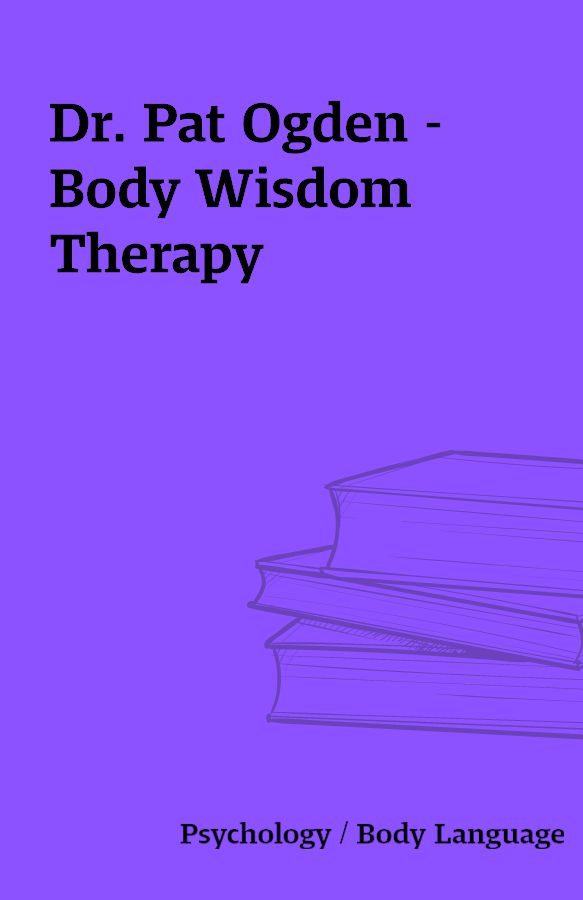
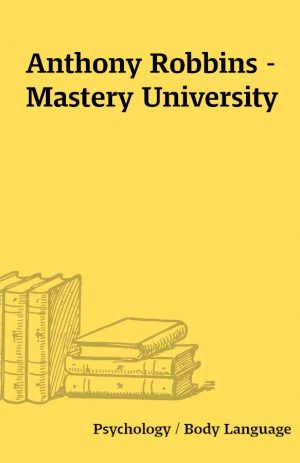
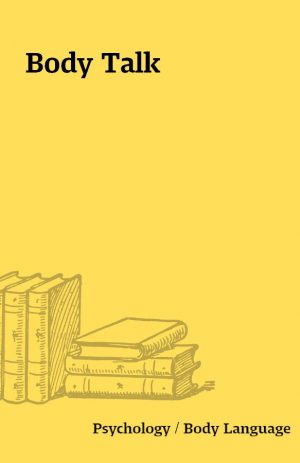
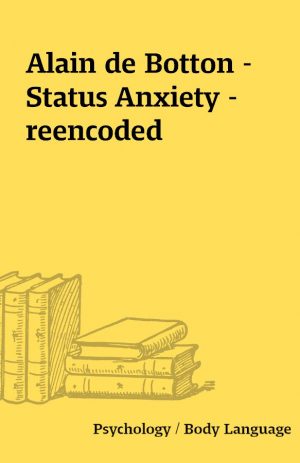
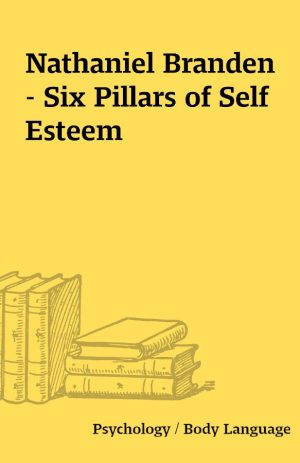
Reviews
There are no reviews yet.